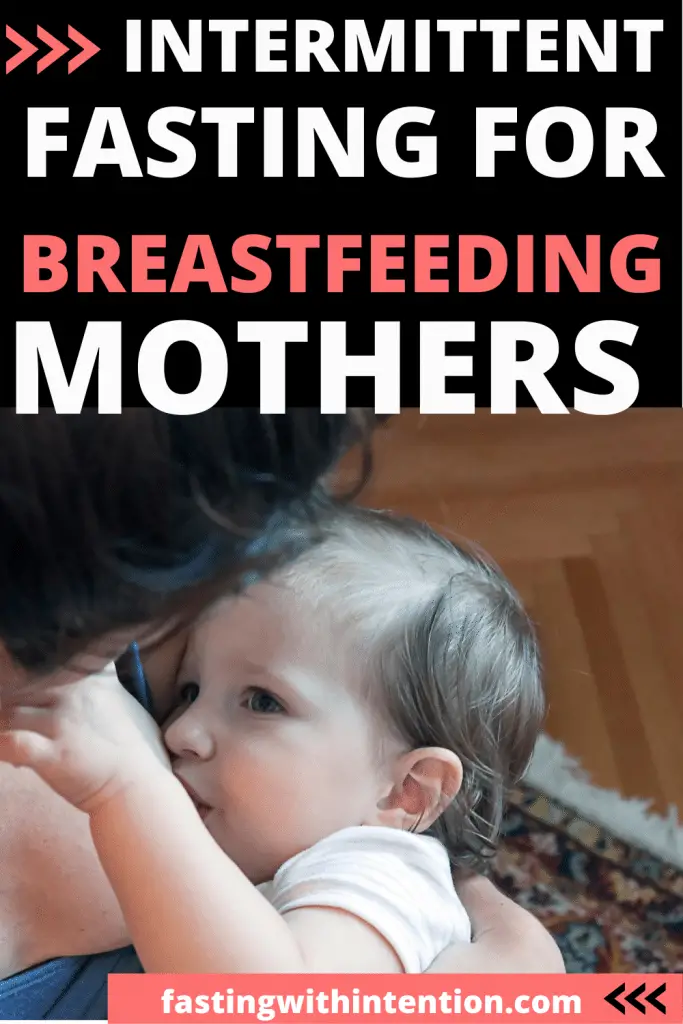I was feeling like I was running out of ideas to talk about on my blog. so I asked my followers on social media to give me ideas. Intermittent fasting for breastfeeding mothers came up and I couldn’t believe I hadn’t thought of it myself! After all, I have had 7 babies, which I all nursed! Pregnancy and breastfeeding was a huge part of m life for 16 years! Anyway, here we go! We will quickly go over the benefits of intermittent fasting for breastfeeding mothers, then talk about how breastfeeding is different when breastfeeding. I am also going to share some important tips to practice intermittent fasting safely while breastfeeding and touch on whether you should practice intermittent fasting during pregnancy.
Benefits of Intermittent Fasting for Breasfeeding Mothers
Whether you are a breastfeeding or not, the main benefit you will gain from intermittent fasting is increased insulin sensitivity.
Increased Insulin Sensitivity
Why does insulin sensitivity matter? Well, it will improve your well being in many ways:
- Fewer cravings
- Better mood
- Better sleep
- More energy
Sounds good, doesn’t’ it? How does increased insulin sensitivity help with all of that? I have heard people refer to insulin as “the mother of all hormones.” When your body can’t handle glucose well and convert it effectively into energy, it needs to produce more insulin to achieve the same results. Most likely your blood sugar will remain higher longer as well. For some, this leads to type 2 diabetes, but for most of us, it leads to a variety of unpleasant symptoms like fatigue and irritability.
The Stress of Not Eating
Another important factor that comes into play is the stress of not eating. Some stress on your body is helpful. Exercise is a common example. When you exercise, your body is under stress and overcoming the stress improves your health. Similarly, the stress of not eating helps heal your cells and reduce inflammation.

How Intermittent Fasting is Different When Breasfeeding
The main difference is that when you are breastfeeding, your body needs more calories. Consuming enough whole foods to provide the energy your body needs to sustain your baby is essential. Depending on which approach of intermittent fasting you choose, you may experience a decrease in milk supply. That’s why you need to learn how to practice intermittent fasting safely when breastfeeding.
How to Practice Intermittent Fasting Safely When Breastfeeding
How do you make sure you practice intermittent fasting safely when breastfeeding? There are some guiding principles you can follow to make sure you don’t experience a decrease in milk supply or start feeling tired from the lack of food when practicing intermittent fasting.
1. Don’t Do A Modified Fast
I always recommend that people do a modified fast when they start with intermittent fasting, but if you are a breastfeeding mom, I would advise against it. For one thing, you may find it extremely hard because your body is screaming at you that you need more food. It’s a protection mechanism. Two, if you were to push through and continue anyway, chances are you would experience a decrease in milk supply. So, the bottom line is: don’t do a modified fast when breastfeeding.
2. Start Slowly
Going long periods of time without food (even 12 hours during the day, as shown by the Ramadan study) may decrease your milk supply. The thing with the Ramadan study is that these women were fasting around 12 hours during the day (between the morning meal and the evening meal) as well as during the night. When you start with intermittent fasting, restrict your eating period to 12 hours during the day, but eat whenever you are hungry during this period. After 2 weeks, if things are going well, you can fast for 14 hours a day and see how it goes.
3. Stick to 3 Meals a Day
As you are getting started with intermittent fasting, give up on snacking. You don’t need to snack to get all the energy your body needs to feed your baby. However, you should make sure you eat 3 meals a day during your 12-hour window. Even as you decrease your eating window (let’s say you have been doing 12 hours and want to try 10 and even 8 hours), I would recommend you still eat 3 meals a day.
4. Don’t Fast for Longer Than 16 Hours Each Day
I don’t recommend breastfeeding moms fast more than 16 hours each day. I would also recommend that your don’t skip through steps and don’t jump into fasting 16 hours a day right away either. Make sure you move slowly, increasing your fasting window by 1 or 2 hours every two weeks and don’t go over 16 hours.
5. Listen to Your Body
Listening to your body is always part of my fasting tips because it is so important no matter what your situation is. I mentioned already that I tried to do a modified fast when I was breastfeeding and I couldn’t. I felt incredibly hungry an uncomfortable. Your body will tell you what you should and shouldn’t do. Learn to pay attention to your hunger signals, your energy level, your sleep, your mood, etc. Adjust what you are doing as needed.
6. Eat Enough Carbs
Many health experts who promote intermittent fasting also promote the keto diet. It is an effective combination for many women. For many women, however, it’s too much and may cause havoc in your hormonal function. That’s why most fasting experts recommend women at least cycle through low carb and higher carb (around 250-200 grams a day) or simply maintain a moderate amount of carbs on a continuous basis. If you are a breastfeeding mother, I recommend you eat at least 50 grams of carbs a day if you are not practicing intermittent fasting. If you are practicing intermittent fasting, I recommend you eat at least 150-200 grams of carbs each day.

What About Pregnancy?
If you are a nursing mama, chances are you will be having more babies. You may be wondering: can I practice intermittent fasting while pregnant? I would not recommend fasting for more than 12 hours each day when you are pregnant. You may wonder why I make this recommendation for pregnant moms and not nursing moms. After all, breastfeeding mothers need more calories than pregnant mothers. It’s simply because, again, you will find your body sends you different signals when you are pregnant and you should listen to them. Most moms will find that they need more frequent and smaller meals while pregnant. During the first trimester, this will be caused by hormones that make you feel nauseous when you go for extended periods without food. Later, it will be because your baby is growing and there isn’t as much room in your stomach. Always pay attention to what your body is telling you!
Intermittent Fasting for Breastfeeding Mothers Video
In Summary
In summary, intermittent fasting for breastfeeding mothers is not too different from intermittent fasting for women in general except for a few key points: don’t do a modified fast, don’t fast for longer than 16 hours, make sure you eat three meals a day and don’t combine the keto diet with intermittent fasting. I hope that clarifies things for you, mama! Keep up the good work and remember, you are nourishing another human being, give yourself some grace!




